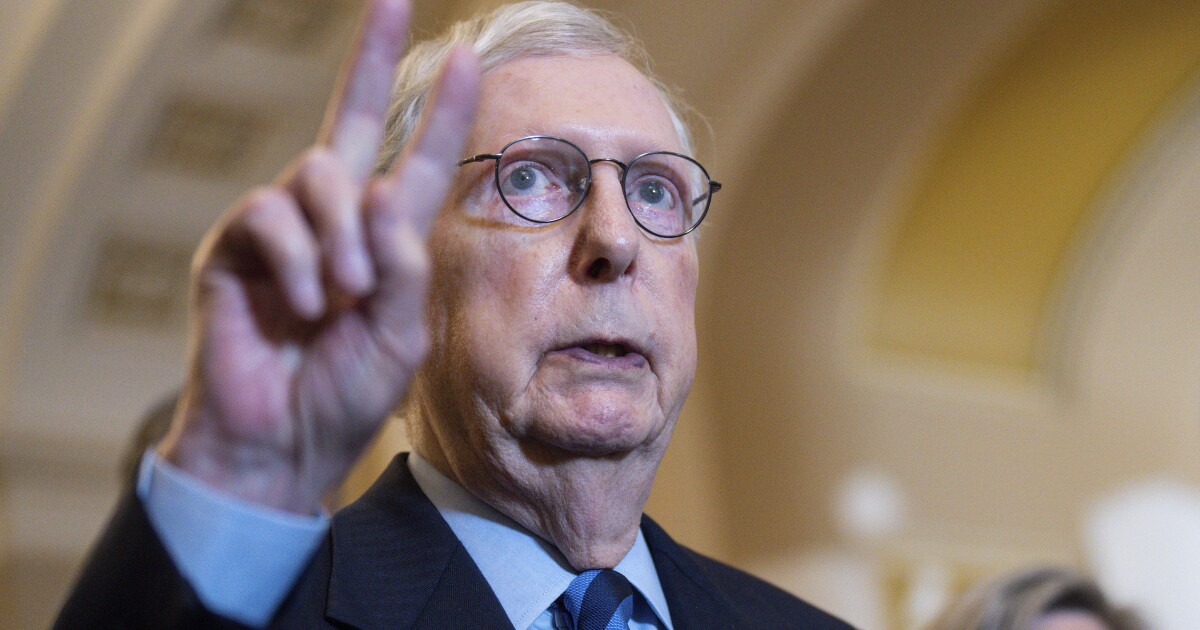

Senate Minority Leader Mitch McConnell (R-KY) said the cap on defense spending for the next two years is the worst part of the debt limit deal struck between House Speaker Kevin McCarthy (R-CA) and President Joe Biden, but he encouraged his conference to vote for the bill once it moves to the Senate.
“I think it’s the worst part of the deal. The defense buildup begins and then peters out,” McConnell said during a press conference on Wednesday. “It is not as good as I would like, but if you look at the totality of the agreement, it should be supported.”
BIDEN WORKS TO PUSH DEBT CEILING DEAL OVER THE FINISH LINE
The 99-page agreement would limit overall national security spending in fiscal 2024 to $886 billion, which is roughly a 3% increase from current levels. In fiscal 2025, defense spending would be capped at $895 billion, a 1% increase from the previous year. The cuts are a point of contention for defense hawks who are advocating spending increases to deter Chinese aggression, with some arguing the Biden administration’s proposed $842 billion for the Defense Department in fiscal 2024 hamstrings the Pentagon while the Chinese continue to build up their military.
“The Biden defense budget takes the Navy from 298 ships to 291, at a time when China is going to increase their navy by almost a third,” Sen. Lindsey Graham (R-SC) said during an interview on Fox News. “I look forward to the details, but if you send me the Biden defense budget to the United States Senate and declare it fully funds the military, you will have a hard time with me.”
Sen. John Thune (R-SD), the No. 2 Republican in the chamber, also expressed some frustrations about the defense numbers but highlighted several wins in the legislation.
CLICK HERE TO READ MORE FROM THE WASHINGTON EXAMINER
“There are many of us who think that the defense number is not sufficient,” Thune said Wednesday. “There are some real wins in this. I think, hopefully, for the American people, not the least of which is the first reduction in nondefense discretionary spending in a decade. A $1 1/2 trillion reduction in nondefense discretionary spending, at a time when defense spending is actually going to go up, that too is something that we have not seen in a long time, where you actually are reducing nondefense spending, and the same time you’re increasing national security funding.”
The debt limit legislation is expected to get a House vote on Wednesday. It is expected to be considered in the Senate before the default deadline of June 5.





